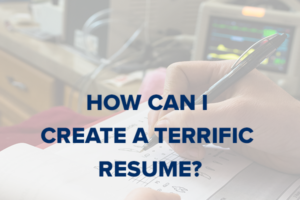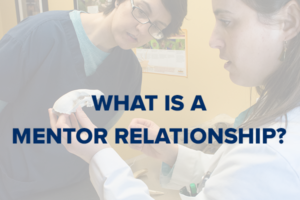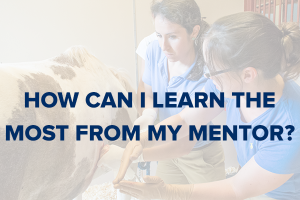MENTOR RELATIONSHIPS
NOT QUITE A MARRIAGE; BUT CLOSE!
A practical guide to the mentoring relationship.
By Bree Montana, DVM, VIN Foundation Vets4Vets® Program Leader
Here we’ll be walking through some tips for developing successful mentoring relationships. I hope we’ll be able to remove some of the roadblocks to mentor success. Additionally, I hope those of you who will soon need mentors will learn some tricks for developing successful mentoring relationships with owners and associates who aren’t naturally gifted with mentoring skills.
I own a small animal hospital and have enjoyed working with several talented newer graduates. I have also been matching mentors with mentees for several years, through the VIN Foundation’s Vets4Vets® Mentor Match program. I’ve learned a great deal from working with my team members.
Good judgement comes from experience, and experience - well, that comes from poor judgement.
I’m not sure who authored this quote, but it’s an excellent description of my hospital ownership- employer- mentor learning curve! I hope this discussion will help you avoid some of my more interesting experiences!
You may be asking yourself “How am I qualified to mentor anyone, and what does being a mentor mean, anyway?!
Anyone in a position to help a colleague work through a case or get comfortable in a new position is dabbling in the dark arts of mentoring.
TYPICAL MENTOR CONCERNS
Here are some of typical concerns that mentors and mentees bring up when we first start working together:
- I don’t have enough experience to be a mentor.
- I don’t have enough time to be a mentor.
- I don’t know how far to go with mentoring; how much depth do I give?
- I need a mentor and worry that I won’t get the support I need.
MENTORING BILL OF RIGHTS AND RESPONSIBILITIES
Mentees:
- You have the right to actively and openly engage and interact with your mentor on a regular basis.
- You have the responsibility to do so at least monthly. These meetings may be in person, via telephone, or by internet.
- You are responsible for developing your medical and surgical skills as well as caseload.
- You have the right to ask for help while building autonomy.
- You are responsible for maintaining a professional and supportive relationship within the practice – both with your support team as well as your hospital’s ownership team.
- You are responsible for approaching your mentoring experience as an educational opportunity which will aid in your learning and developing as a veterinary practitioner.
- You have the right to pursue continual education with the goal of enhancing your medical and surgical skills as well as building your hospital’s client base.
Mentors:
- You are responsible for advising and guiding your new associate. This will include teaching, coaching, and simply listening.
- You have the responsibility to meet with your associate at least monthly. These meetings may be in person, via telephone, or by internet.
- You have the right to set protocols and rules in your hospital in order that patient care may be provided in a safe, appropriate, and cost-effective fashion.
- You have the right and responsibility to provide candid, honest and supportive appraisal of medical and surgical diagnostic and treatment plans, while supporting your associate’s developing skill sets.
- You have the right to learn as well as develop new techniques and treatment protocols with your associate. You and your associate are encouraged to grow and learn together, creating a partnership that is stronger than either of you were individually.






